Filter by
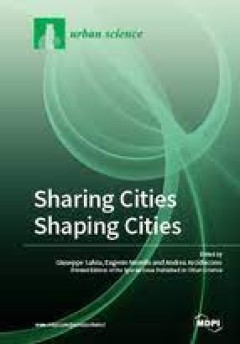
Sharing Cities Shaping Cities
The sharing economy and collaborative consumption are attracting a great deal of interest due to their business, legal and civic implications. The consequences of the spreading of practices of sharing in urban environments and under daily dynamics are underexplored. This Special Issue aims to address if and how sharing shapes cities, the way that spaces are designed and lived in if social inter…
- Edition
- -
- ISBN/ISSN
- 978-3-03897-989-0
- Collation
- -
- Series Title
- -
- Call Number
- 337 SHA
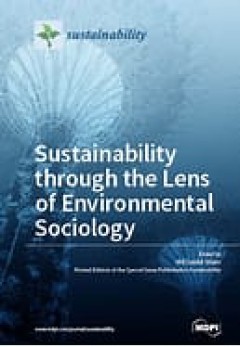
Sustainability through the Lens of Environmental Sociology
Our planet is undergoing radical environmental and social changes. Sustainability has now been put into question by, for example, our consumption patterns, loss of biodiversity, depletion of resources, and exploitative power relations. With apparent ecological and social limits to globalization and development, current levels of consumption are unsustainable, inequitable, and inaccessible to th…
- Edition
- -
- ISBN/ISSN
- 978-3-03842-661-5
- Collation
- -
- Series Title
- -
- Call Number
- 333 SUS
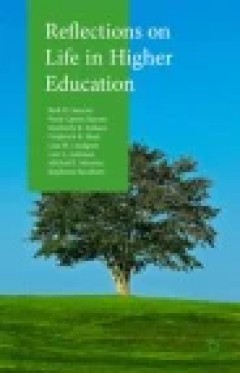
Reflections on Life in Higher Education
This book explores the challenges of an academic teaching career. The authors discuss the issues that may arise in the tenure process, scholarship activities, publishing, and providing service to their academic communities as well as how to keep teaching lessons relevant and fresh.
- Edition
- -
- ISBN/ISSN
- 978-1-137-56045-2
- Collation
- -
- Series Title
- -
- Call Number
- 370.1

Transcultural Literary Studies : Politics, Theory, and Literary Analysis
Witnessing the rise of nationalism, nativism, and xenophobia in many countries, theories of transculturalism arose, in part, out of the concern that multi- and intercultural identity models have not set themselves sufficiently apart from their own culturalist baggage, thus leaving their doors open to strong nationalistic and ethnocentric orientations. But how can we—how can literature—imagi…
- Edition
- -
- ISBN/ISSN
- 978-3-03842-395-9
- Collation
- -
- Series Title
- -
- Call Number
- 374 TRA
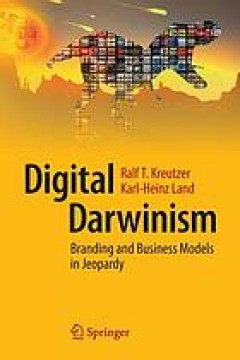
Digital Darwinism : branding and business models in jeopardy
Digital Darwinism is a key challenge for all companies and brands. Not all companies and managers are aware of the challenges lying ahead. This book helps to identify the need for change and adaption based on a framework of findings and additional tools to position you and your company in the digital rat race
- Edition
- -
- ISBN/ISSN
- 9783642544019
- Collation
- 266 pages
- Series Title
- -
- Call Number
- 338.7

Histories of Transnational Crime
Histories of Transnational Crime provides a broad, historical framework for understanding the developments in research of transnational crime over the centuries. This volume provides examples of transnational crime, and places them in a broad historical context, which has so far been missing from this field of study. The contributions to this comprehensive volume explore the causes and historic…
- Edition
- -
- ISBN/ISSN
- 978-1-4939-2470-7
- Collation
- XIII, 188
- Series Title
- -
- Call Number
- 363.25 HIS

Digital expectations and experiences in education
For more than three decades, researchers, policy makers and educationalists have all harboured great expectations towards the use of technology in schools. This belief has received a hard knock after an OECD 2015 report has shown that computers do not improve pupil results: Investing heavily in school computers and classroom technology does not improve pupils' performance, and frequent use of c…
- Edition
- -
- ISBN/ISSN
- 9789463006484
- Collation
- 259 pages
- Series Title
- -
- Call Number
- 371.33
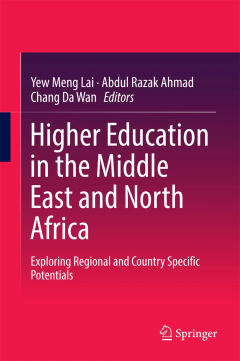
Higher Education in the Middle East and North Africa: Exploring Regional and …
This book explores the prospects for higher education development in the Middle East and North African (MENA) region. Adopting a South-South perspective (from the viewpoint of a developing country), it seeks to promote a deeper understanding of this colourful and highly diverse, yet volatile region. As such, it examines six selected MENA countries that serve as case studies for identifying the …
- Edition
- -
- ISBN/ISSN
- 978-981-10-1054-5
- Collation
- XIII, 161
- Series Title
- -
- Call Number
- 379
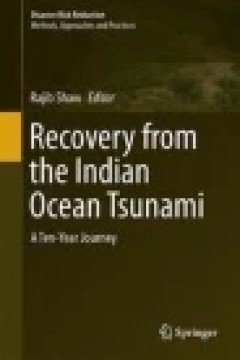
Recovery from the Indian Ocean Tsunami: A Ten-Year Journey
During the past 10 years following the 2004 Indian Ocean Tsunami, invaluable lessons have been learned and great changes have been observed. Immediately after the disaster, the second World Conference on Disaster Reduction was held in Kobe, Japan, and formulated the Hyogo Framework for Action (HFA: 2005–2015). HFA provided a platform and framework for changes and innovations, many of which we…
- Edition
- -
- ISBN/ISSN
- 978-4-431-55117-1
- Collation
- -
- Series Title
- -
- Call Number
- 333.72
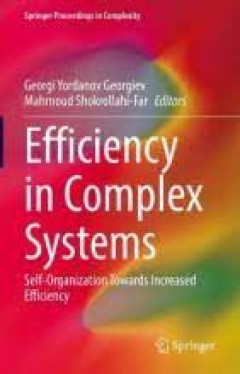
The Economy as a Complex Spatial System : Macro, Meso and Micro Perspectives
This collected volume gives a concise account of the most relevant scientific results of the COST Action IS1104 “The EU in the new complex geography of economic systems: models, tools and policy evaluation”, a four-year project supported by COST (European Cooperation in Science and Technology). It is divided into three parts reflecting the different perspectives under which complex spatia…
- Edition
- -
- ISBN/ISSN
- 978-3-319-65627-4
- Collation
- XII, 220 halaman
- Series Title
- Springer Proceedings in Complexity
- Call Number
- 330 ECO
 Computer Science, Information & General Works
Computer Science, Information & General Works  Philosophy & Psychology
Philosophy & Psychology  Religion
Religion  Social Sciences
Social Sciences  Language
Language  Pure Science
Pure Science  Applied Sciences
Applied Sciences  Art & Recreation
Art & Recreation  Literature
Literature  History & Geography
History & Geography